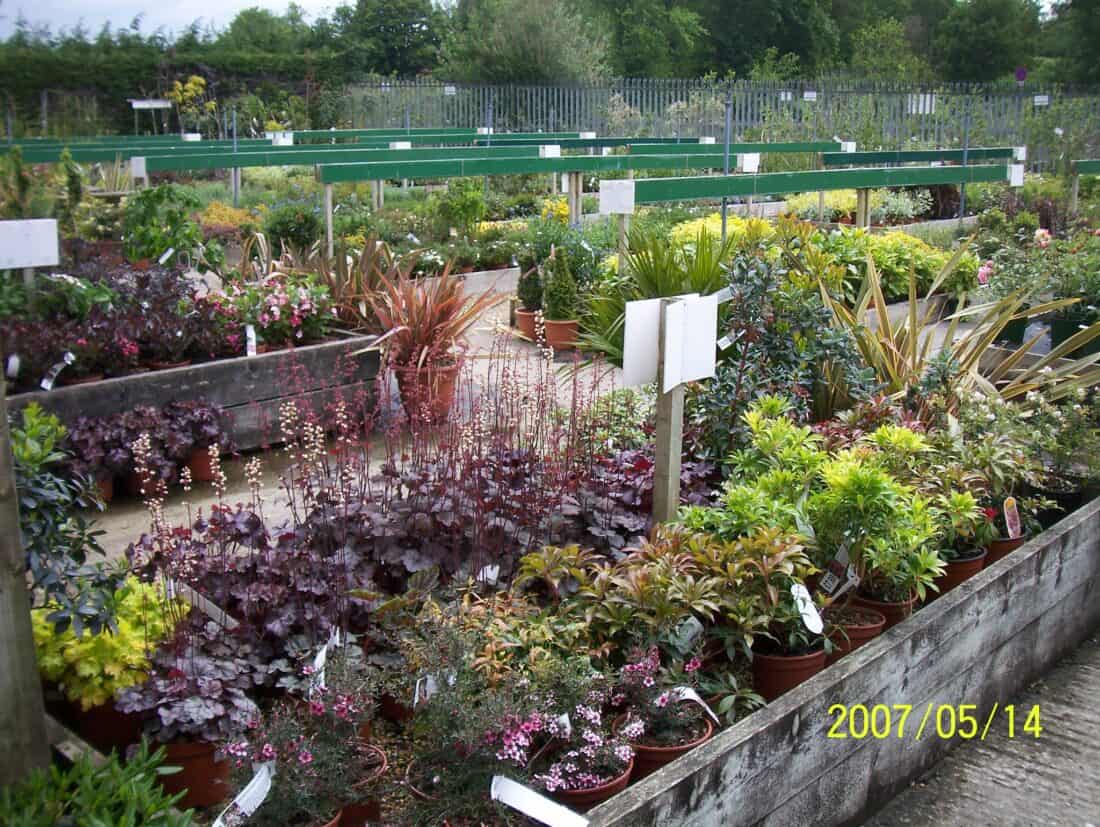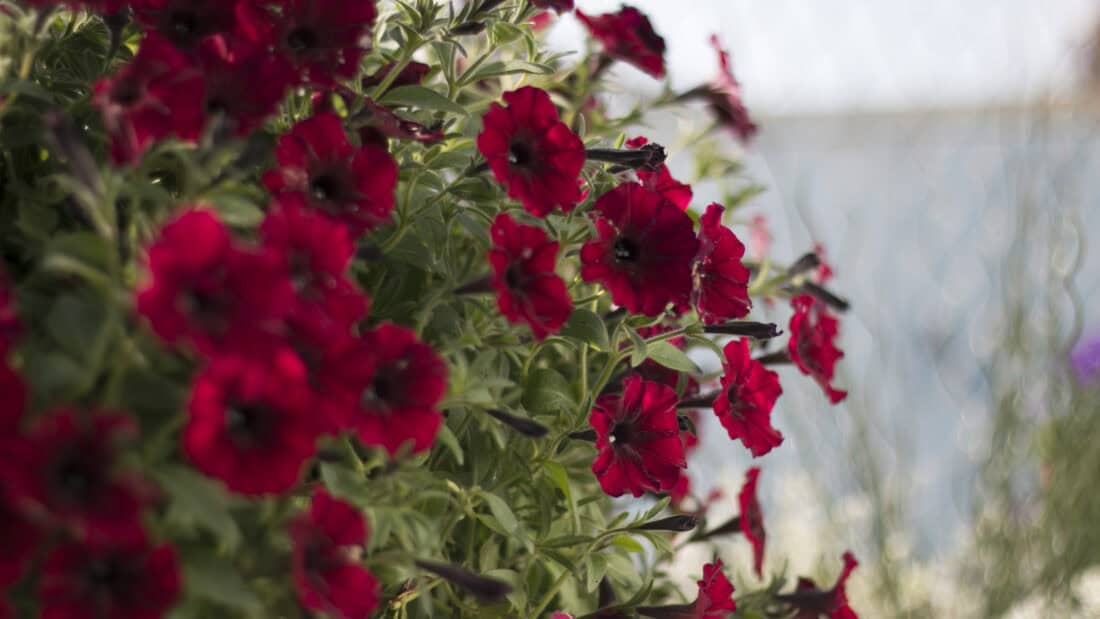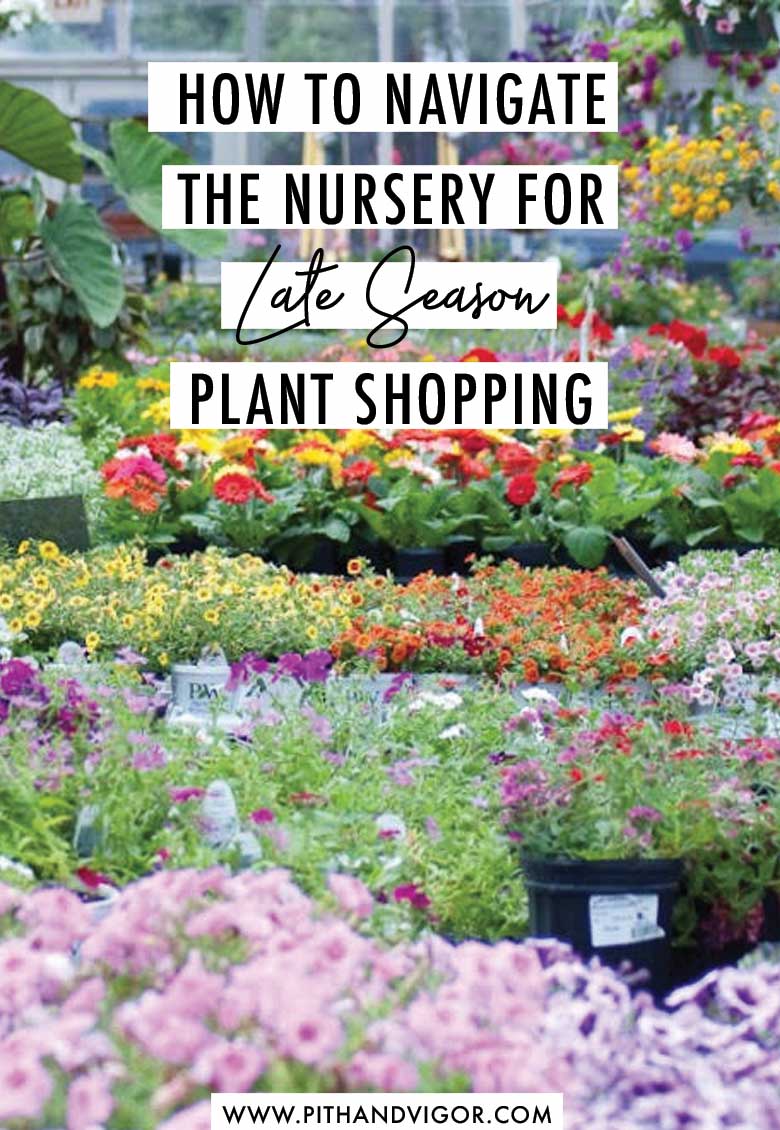How To Get Cheap Plants in the Fall – Late-Season Plant Bargains at The Garden Center
It’s late July/ August, and it is officially ‘late season’ for plant shopping at the nursery and this is your guide to getting cheap plants at one of the best times of year for planting.
(Don’t worry! – you get another chance for regular-season planting in the early fall – come September).
In many parts of the country, Late summer is a good time to find sales on perennials, particularly those that have already peaked (i.e., bloomed) earlier in the season.
Garden center and nursery visits are one of the best things about being a garden designer. I’ve often thought I could make a whole business just leading clients around a well-stocked nursery. Even a non-gardener often becomes a kid in a candy store when plant shopping, but with a paralyzing fear of choosing the wrong flavor.
How To Get the Best Fall and Late-Season Plant Bargains at The Garden Center
So, how do you get cheap plants – but also keep your cool and make sure you don’t end up with a plant version of spoiled milk and dead fish-flavored Bertie Botts jelly beans? Here are a few guidelines:
Always have a plant list – which is really more like a framework.
The goal of your plant list isn’t to fill your car with exactly what you planned—that isn’t the point. Sure, it would be great if you could get exactly what you want, but often, that doesn’t happen. Nursery stock comes and goes quickly; sizes are varied, and health might not be what you want – there are lots of reasons why you have to change direction and consider other options.

This is why you have a plant list, though – the plant list is there to guide you for quantities (numbers are hard to remember), but most importantly, I always make a quick note about the reason why I need what is on my list.
Here are a few examples – fill for a sunny spot between the roses or something in pale pink that will handle the crap soil where the old patio was; maybe you need something that tolerates shady clay or is tall and will look good against a black wall. Or do you need more red in August? The options and reasons are endless, but you have them, so make a note of them. Remembering why and your design goals for picking the original option will help you effectively choose a replacement.
These notes keep me on track but open to the fun of spontaneously reworking everything after I have garnered the excellent advice of nursery staff or I have discovered some entirely new and fantastic combination.
2) Talk to the staff at the Garden Center
Which brings me to my next point – Always Talk To The Staff!*
*if you are shopping at a real garden center, with real plant-loving people working there – not a big box store (which nearly always has staff that hasn’t a clue about the plants).
A good nursery has good plant people working there. Talk to them and mine them for information about every aspect of the plant. Talking to other gardeners is my top plant shopping tip – do it even if you aren’t shopping for plants.

Even if you are the most knowledgeable plant person, you can’t know everything—open your ears, and you will always learn something.
Gardening is as much a social act as a quiet and meditative one and the nursery is where knowledge and wisdom passes easily from one person to the next. (And if it doesn’t – find a new nursery! – one that has helpful and knowledgable staff).
3) Don’t be delusional – Only buy what will work for your garden
Also, don’t lie to yourself – which is easier to do than you think.
Full shade is not partial shade, and partial shade is not full sun. Clay soil is not in any way slightly chalky, and adding a little compost to sandy soil will not make it humus-rich. It will always be sandy.
Gardeners are notoriously delusional—sheer crazy optimism is rampant in our types. Try not to think you can make something work that just isn’t meant to be.
Your conditions are what they are – recognize them (honestly) and work with them. See them not as something to overcome but as helpful tools and clues that allow you to narrow down the millions of plant choices and discover new things to achieve your goals.
Don’t be tempted to buy what you can’t grow.
Avoid things that look wilty, or have weeds growing on top of the pot, these are signs of neglect that very likely have traumatized the plant. Traumatized plants are weaker and will be more susceptible to pests and disease and often will never recover.
Check the under the leaves for unwanted pests, and inspect the roots too.
Are the roots growing out of the holes in the bottom of the pot? Lift the plants out of the container and see if they are a knotted-up swirl (dense roots are ok – but roots that are knotted up and swirling in on themselves are not so good). Thick and twisted roots will need to be loosened before planting, and these plants can still have a hard time establishing themselves in their new homes.
These are my basic rules, and I follow them faithfully (right up until I decide to rescue a deeply discounted near lifeless wretch I am sure I can garden back to life 😉 – I’m as guilty as anyone)
5) But do look for the slightly damaged plants
Trees and shrubs with a broken limb or other slight imperfections can often bring the price down. Just make sure the damage is cosmetic and not life-threatening. Cosmetic damage is often quickly corrected in a season or two or new growth.
Root-bound, neglected, or weedy plants often never fully recover – they can be cheap – but you have to be prepared to nurse them back to health and accept a much higher chance that it doesn’t survive due to its weakened state.
6) Untagged plants can be hidden gems
Many nurseries discount these tag-less plants since the variety is unclear. It is another type of gamble, but if you can use your keen plant knowledge and powers of comparison, you can often come away with bargain basement treasure.

For more tips about shopping for plants – You might also want to read How to buy plants like a pro (including at online nurseries)